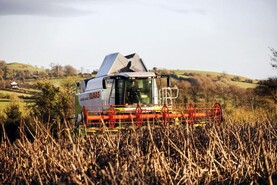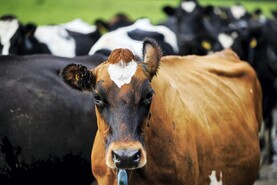Operating profit a Dairygold jumped by almost €10m to €40.2m last year on turnover that surged €478m to €1.65bn.
That huge move in the value of product was almost entirely driven by the rapid moves higher in global prices in 2022.
Milk volumes from Dairygold milk suppliers, at 1.48bn litres, were very slightly lower than 2021’s 1.49bn litres. That small drop was the first since the abolition of milk quotas in 2015. Fine weather and strong prices towards the end of the year helped volumes, which otherwise would have come in much lower than 2022.
The society says it paid “a leading milk price” last year, with the average quoted milk price of 54.9c/l up more than 50% from 2021’s average of 36.0c/l. Average prices paid were 62.4c/l.
Average quoted milk prices over the past decade were 34.5c/l.
Investments
Dairygold had net cash investments of €40m in capital expenditure during the year, while net debt grew by €24.1m. The new evaporator on the Mallow Nutritionals Campus is now fully operational for 2023 and should lead to less downtime, and therefore greater efficiency there. The significant redevelopment of the Casein facility at the Castlefarm dairy processing complex is on track to be completed for the 2025 processing season.
The society’s agribusiness division’s turnover jumped to €388m, a €112m increase on the previous year. Again, this surge was mostly driven by the considerably higher prices seen last year.
Dairygold said it recognises the impact the price volatility had on farmers in 2022 and expects this to continue to be a challenge in 2023.
Dairygold CEO Conor Galvin said the “significant increase in operating profit was achieved against a backdrop of considerable volatility and inflationary pressures”.






 This is a subscriber-only article
This is a subscriber-only article










SHARING OPTIONS: